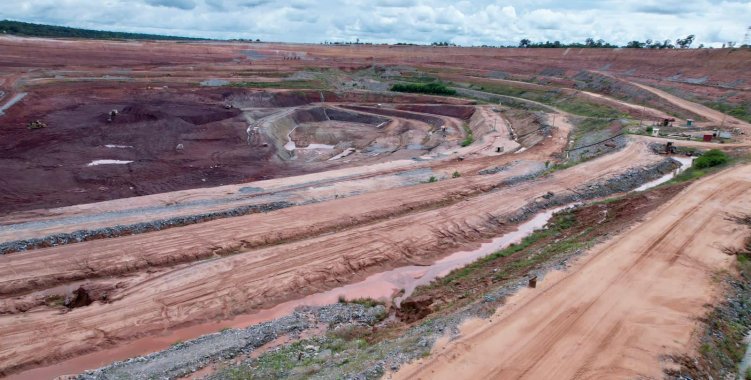The National Coordination Committee (CNC) of the EITI in Angola, says it has information about the licenses in force in the extractive industry in the country, but that "the information contains limitations in data required by the EITI standard", in its opinion "due to the lack of consolidation, reporting and updating routines of this data, on a recurring basis and in line with the requirements of the Standard", reads the report, which Lusa had access to this Monday.
Among this information "the centralization of contracts and structured information about the bidding process stands out", says the document, highlighting that the CNE of ITIE-Angola is in the process of setting up a working group and hiring a consultant to support and achieve this challenge.
The CNC, chaired by the Minister of Mineral Resources, Oil and Gas, Diamantino Pedro Azevedo, "should identify possible deviations from the legal framework that provides for the attribution and transfer of oil, gas and mineral licenses", points out the report.
The so-called Independent Administrator (AI), a type of report auditor, recommends that the EITI-Angola CNC, through the working group, outline a strategy for consolidating the completeness of the data, by license, required by the EITI standard.
The CNC must also define a strategy for publishing documents, on a recurring basis, for example, on the websites of state bodies.
Additionally, the EITI CNC must develop a methodology to identify variations in the allocation of licenses, in relation to the legally defined procedure, through verification processes, of material deviations.
The EITI-Angola CNC submitted its first report to the international EITI on December 15th, after being unanimously validated at a meeting of that body days before.
Angola was admitted to the organization in June 2022 and has already sent its first report, with data referring to the 2021 fiscal year, which should be evaluated by ITIE Internacional in September 2024.
According to the report, the Angolan State collected 5.8 billion kwanzas in oil revenue in 2021, corresponding to 40 percent of its total revenue, and collected, in the same period, 48.4 billion kwanzas in diamond revenues.
The contribution of the extractive industry in 2021 represented around 31 percent of Angola's Gross Domestic Product (GDP) (current prices), and around 84 percent of the country's total exports, as stated in the document.
In the field of disclosing contracts, the report highlights that contracts and licenses, and respective contractual terms, signed after January 1, 2021, must be publicly disclosed, "whereas currently, in Angola, with special emphasis on the oil sector, there are limitations legal provisions and confidentiality clauses in contracts, which do not allow compliance with the requirement".
The AI also highlights the importance of starting the development of an action plan and moving forward with the defined plan, with the aim of supporting the work to be outlined and aimed at eliminating verified legal limitations.
This entity also considers that there is no legal framework that defines the roles and responsibilities of those involved in the EITI process in Angola and recommends the promulgation of an EITI legislative document.
"This law will provide a better understanding of the EITI process by all interested parties and will ensure successful disclosure of financial information and the reconciliation process", he highlights.
Diamantino Pedro Azevedo, in his message regarding the remission of the report, expresses his conviction that Angola's participation in the EITI "will ensure better governance of its mineral resources, reduce the risks of diversion or misappropriation of funds generated by extractive industries and ensure greater and better cooperation between government, industry and civil society".







